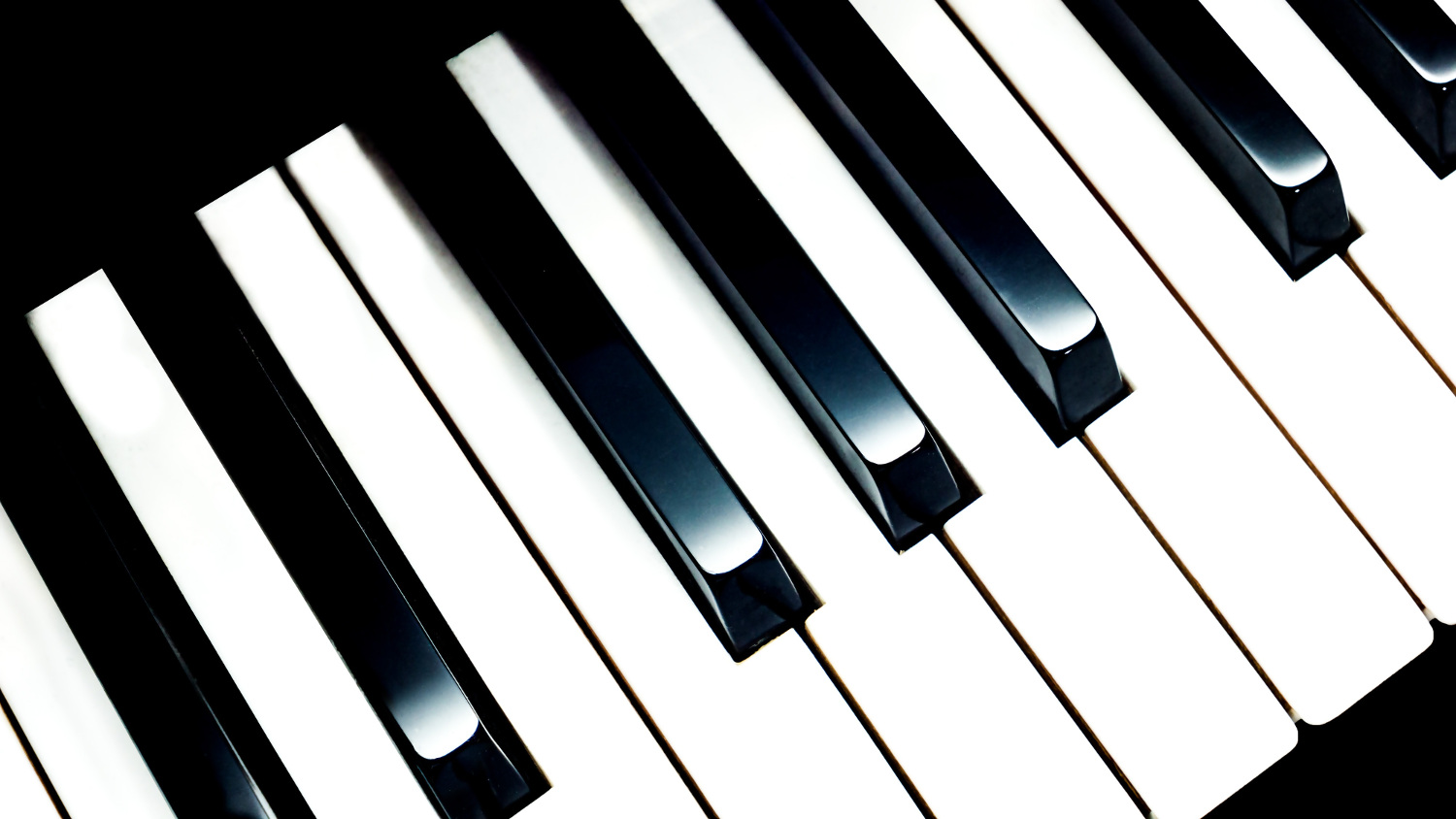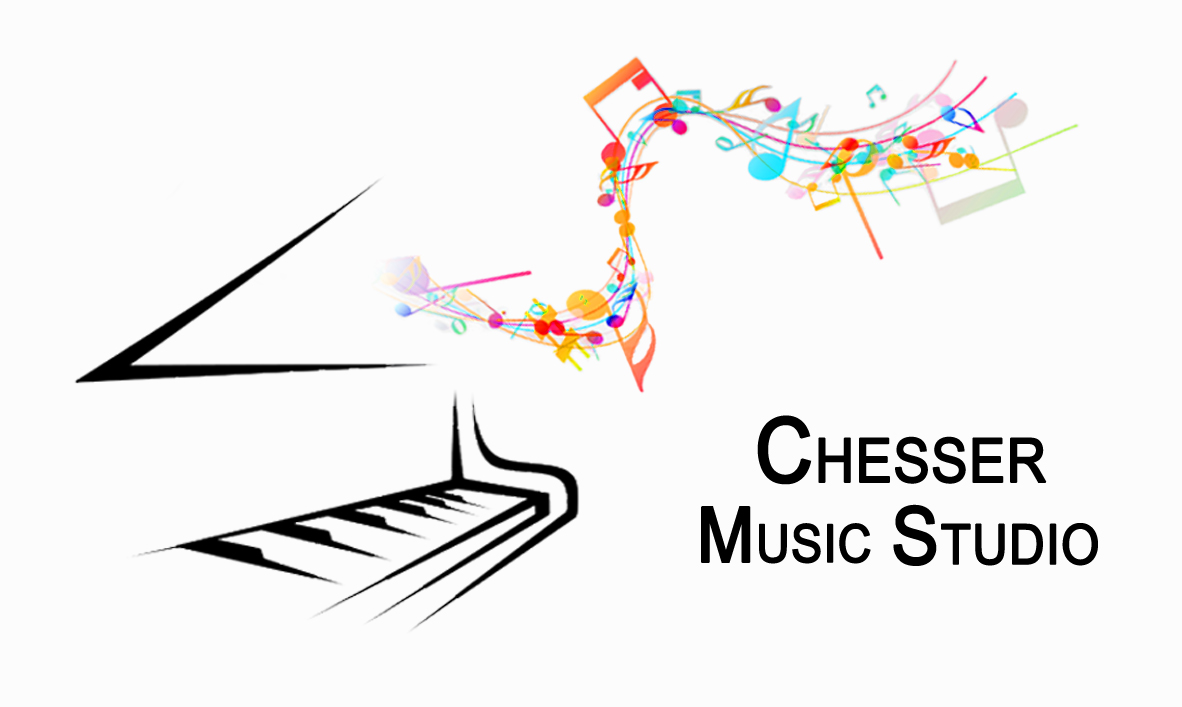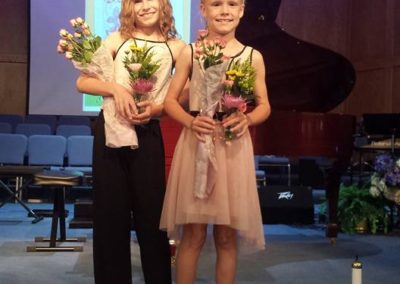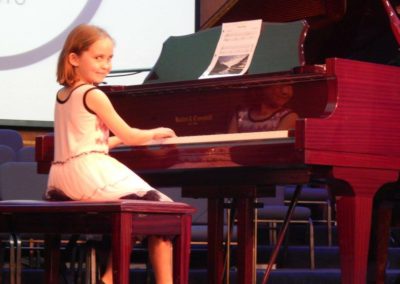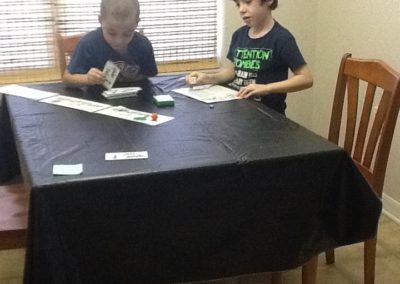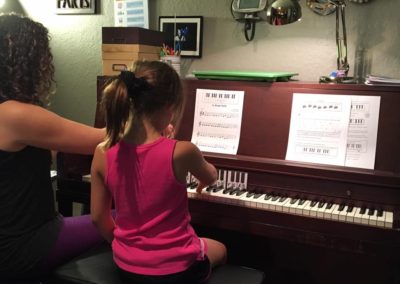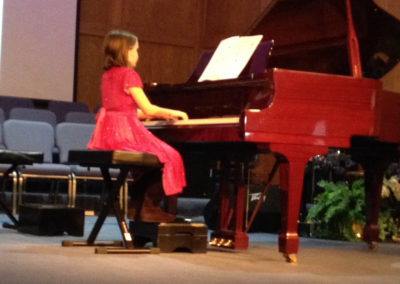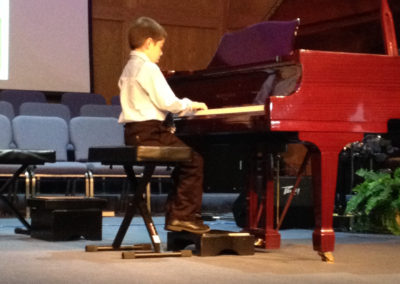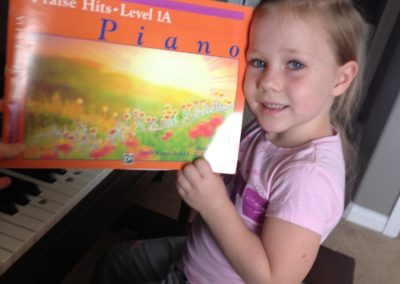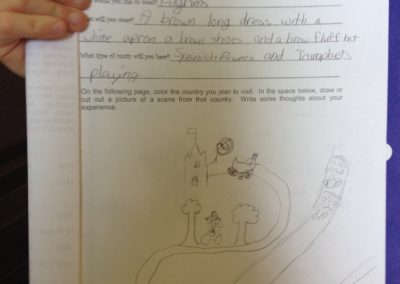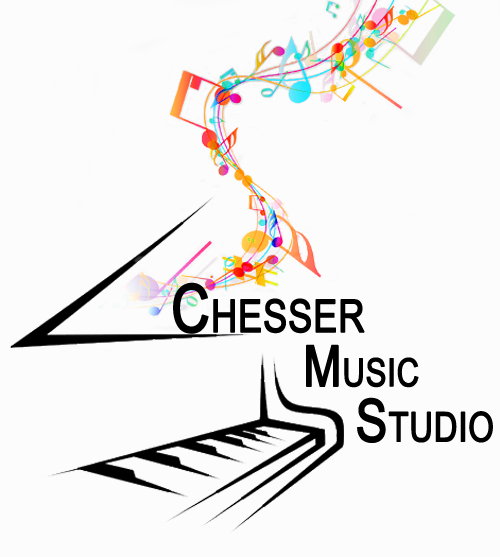Piano Lessons
for all ages and stagesWhat does a piano lesson look like at Chesser Music Studio?
A typical weekly lesson for a beginner piano student consists of most of the following:
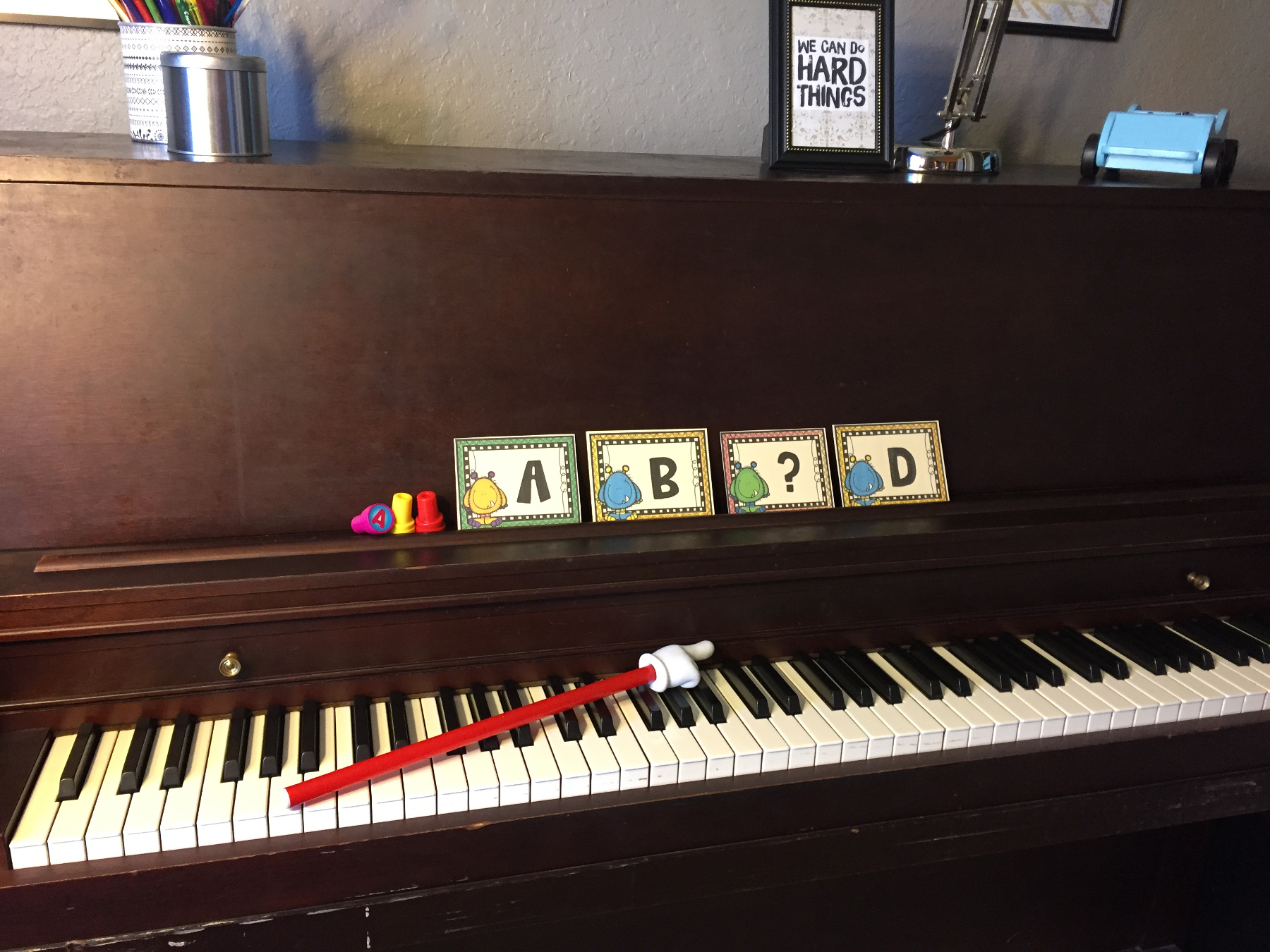
A rhythm selection, with and without metronome. The student has an assigned page of rhythm exercises to practice during the week, then we perform them together by clapping, tapping, or using rhythm instruments. More advanced students will use these rhyhm exercises to compose short melodies on the piano.
Technical exercises, focusing on bench height, posture, hand shape, finger stability, flexible wrists, etc. Proper technique is essential for the beginning pianist, as bad technique can lead to injury and a lifelong struggle to retrain bad habits.
A selection from a method book that best suits the student’s age, experience, and learning style. We prefer Piano Pronto for their clean layout, recognizable tunes, and approach to reading music.
Music theory work with Theory Time. Students are taught to read music, identify intervals and chords, as well as train their ears to hear and identify rhythms, intervals, and chords.
Musical games to reinforce concepts.
Supplemental music such as pop music, movie music, hymns, popular church music, jazz selections, children’s songs, etc.
A rhythm selection, with and without metronome. The student has an assigned page of rhythm exercises to practice during the week, then we perform them together by clapping, tapping, or using rhythm instruments. More advanced students will use these rhyhm exercises to compose short melodies on the piano.
Technical exercises, focusing on bench height, posture, hand shape, finger stability, flexible wrists, etc. Proper technique is essential for the beginning pianist, as bad technique can lead to injury and a lifelong struggle to retrain bad habits.
A selection from a method book that best suits the student’s age, experience, and learning style. We prefer Piano Pronto for their clean layout, recognizable tunes, and approach to reading music.
Music theory work with Theory Time. Students are taught to read music, identify intervals and chords, as well as train their ears to hear and identify rhythms, intervals, and chords.
Musical games to reinforce concepts.
Supplemental music such as pop music, movie music, hymns, popular church music, jazz selections, children’s songs, etc.
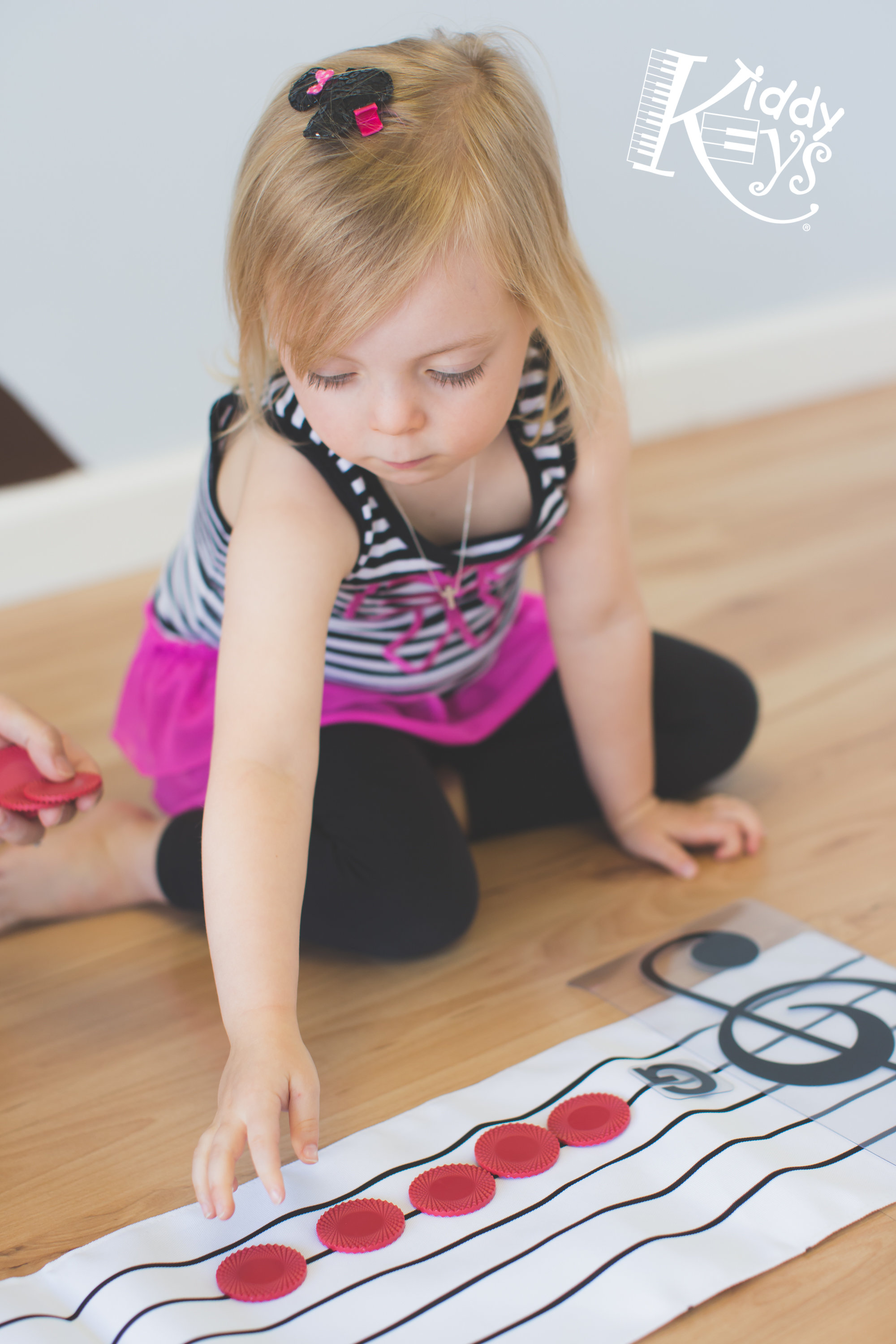
Is my child ready for piano lessons?
Every child is different. Some children are ready for private lessons at age 4. Some children need a few more years to mature. Others would do better in a group environment with no weekly practice commitment.
KiddyKeys classes are perfect for the student who is not quite ready (or old enough) for one-on-one piano lessons! They are designed to appeal to your child’s unique learning style – visual, auditory, or kinesthetic – and allows your child to explore and experience the exciting nature of music in a small group of their peers.
With KiddyKeys classes as a foundation, your child will be confident and ready to move on to piano lessons!
